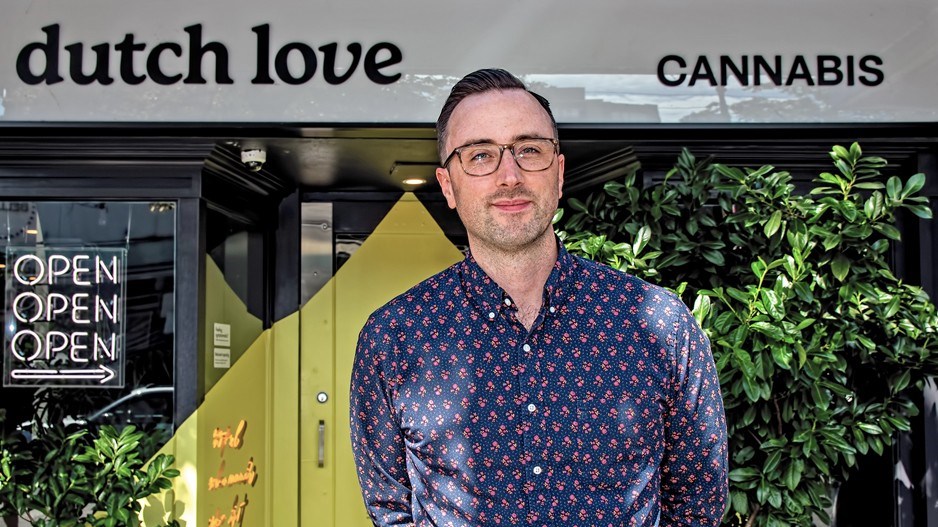It took two years after Canada legalized adult cannabis use for spending on licensed products to surpass that for black market items.
The disparity has since widened, with legal sales rising and black market sales falling, according to Statistics Canada data.
Legal cannabis retailers say business could be even better if government eliminated red tape in areas such as delivery, which unnecessarily regulates business operations.
The latest data shows that Canadians spent $1.38 billion on legal cannabis products and $998 million on black market cannabis in 2021’s second quarter.
Rising cannabis sales in B.C. have contributed to the national trend. British Columbians spent a record $52.3 million on cannabis products in August – the most recent month for which data is available. That beat the previous monthly record high of $48.8 million set in July.
Eroding the illicit market, which commands almost 42% of sales, is a challenge for legal operators who must pay a wide range of government fees to establish their locations, such as excise taxes, business licence fees and other costs that illegal operators do not pay. Even when government regulatory changes aim to level the playing field, it is still tilted in favour of black market entrepreneurs.
Take the ability to deliver products as one example.
Black market operators deliver products however they wish.
In the early days of legalization, retailers could not accept online orders or payment. The B.C. government allowed them to use e-commerce, starting in August 2020, as long as buyers picked up products in person.
That changed on July 15, when Victoria finally allowed legal cannabis sellers to deliver products to customers.
The government also set out a series of conditions.
Legal cannabis merchants may walk to the customer’s address and personally deliver the products. Otherwise, they must use a corporately owned vehicle.
They may use a bicycle if they have a receipt to prove that the bike was bought with corporate funds. All cars and trucks must also be corporately owned and insured.
B.C.’s Ministry of Public Safety and Solicitor General told BIV in an email that the rationale for this policy is “to ensure [Liquor and Cannabis Regulation Branch] inspectors have the authority to inspect the vehicles to ensure compliance with provincial laws, as the vehicles are considered part of the establishment.”
Cannabis retailers, however, have told BIV that insurance rates for corporate vehicles that transport cannabis are much higher than those for personal vehicles that are sometimes used for work purposes.
“We are doing delivery, and we are not making money on it because the cost of commercial vehicles, especially with insurance in this particular industry, is astronomical,” Dutch Love Cannabis chief growth officer Harrison Stoker told BIV.
“We’re incredibly grateful to the province for including the new regulatory framework [to allow deliveries], but they really didn’t consider the economics for an independent business owner.”
Stoker added that the government maintains its monopoly on being able to use third-party delivery companies, such as Canada Post, and that his company would like the option to be able to use those services.
The government told BIV that the industry asked it to ban legal private-sector cannabis sellers from being able to use third-party delivery services. Association of Canadian Cannabis Retailers (ACCRES) executive director Jaclynn Pehota confirmed that this is true but said that the industry’s stance has changed.
Her organization surveyed members and found that about 80% were concerned that third-party delivery companies would charge exorbitant fees.
“We saw a lot of price gouging in Ontario by third-party services when delivery was rolled out by the government,” she said.
ACCRES is now lobbying for the B.C. government to allow legal cannabis sellers to use third-party delivery services.
Those third parties are unlikely to include Uber Technologies Inc. (NYSE:UBER) or other food-delivery companies, although that may come in time.
The rule that customers must show identification to accept products will undoubtedly continue to be a key component of delivery regulations, as the same requirement falls on liquor-delivery services.
Some legal sellers told BIV that they are unlikely to use Canada Post for deliveries because its delivery times are too slow for many customers.
“They call and they want products shipped out right away,” said Evergreen Cannabis Inc. owner Mike Babins, whose company is setting up an e-commerce website and plans to offer deliveries by bicycle to customers near its Kitsilano store.
“They want cannabis like they want pizza.” •




